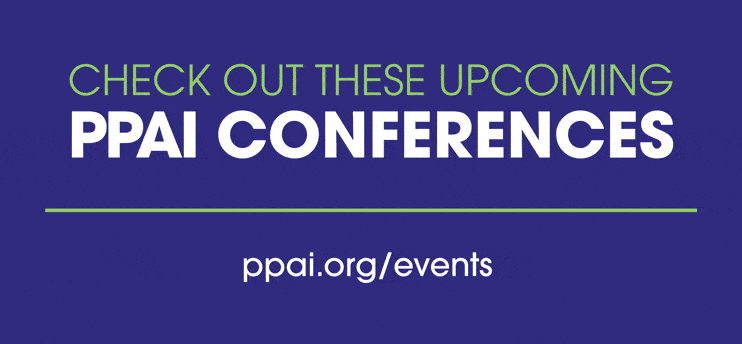How closely do you watch leadership trends? As the business landscape constantly evolves, it becomes increasingly important for leaders to pay attention to trends and predictions that influence their company, industry and employees. Maureen Metcalf, an executive who helps leaders innovate how they lead, says that leaders must focus on the trends coming their way if they want to achieve the most success.
In this issue of Promotional Consultant Today, we share Metcalf’s top leadership trends to watch from now through 2022.
1. A “wait and see” approach won’t work. It’s important for leaders to acknowledge trends and predictions so they’re not caught unprepared. There are threats and opportunities on all fronts. Leaders should be poised to leverage both.
2. Leaders and organizations become more agile. Small, multidisciplinary teams of agile organizations can respond swiftly and promptly to changing market opportunities and customer demands. Metcalf encourages leaders to adopt a nimble mindset and culture. This means paying attention to trends and identifying small experiments you can try to keep up with or get ahead of changes happening around you. Once you know what works for you and how it works, pilot that change. Truly agile organizations are always experimenting.
3. Organizations and their people must accelerate their learning. Many organizations are automating more work. Employees who continue to learn and update their skills will be able to find new roles, while those who don’t commit to continually learning will face bleaker options as their roles diminish.
4. Age range in the workforce continues to expand. As life expectancy increases, many professionals either want or need to remain in the workforce longer. Organizations can stay on top of this trend by finding ways to attract and engage experienced workers. They also must address the dynamics created when multiple generations of employees work together. Metcalf also encourages organizations to be creative in promoting engagement and teamwork across multiple generations, striving to promote the best person for the role rather than falling back on age-based seniority.
5. Leaders must identity and build talent faster. There are probably untapped sources of talent you haven’t previously considered, such as those leaving incarceration or individuals with disabilities.
6. Continue to engage employees, especially during volatile times. Human interaction will only grow in importance as more of the workforce performs their job duties remotely. Leaders and organizations must focus on soft skills such as emotional intelligence that have a strong impact on engagement and the effort employees invest in communicating.
7. Effective leaders must remain conscious of their impact. Metcalf says it becomes increasingly important to note the needs of competing stakeholders and balance these demands. Conscious capitalism is one mechanism that helps leaders explore the broader range of stakeholders and understand their drivers.
Leaders aren’t appropriately doing their jobs if they stick their head in the sand. Take a look around at rising trends and adjust your focus accordingly.
Source: Maureen Metcalf is the president of Metcalf & Associates, Inc. Her work focuses on helping leaders innovate how they lead while transforming their organizations. She’s also a principal at thoughtLEADERS and teaches programs on building personal resilience.


